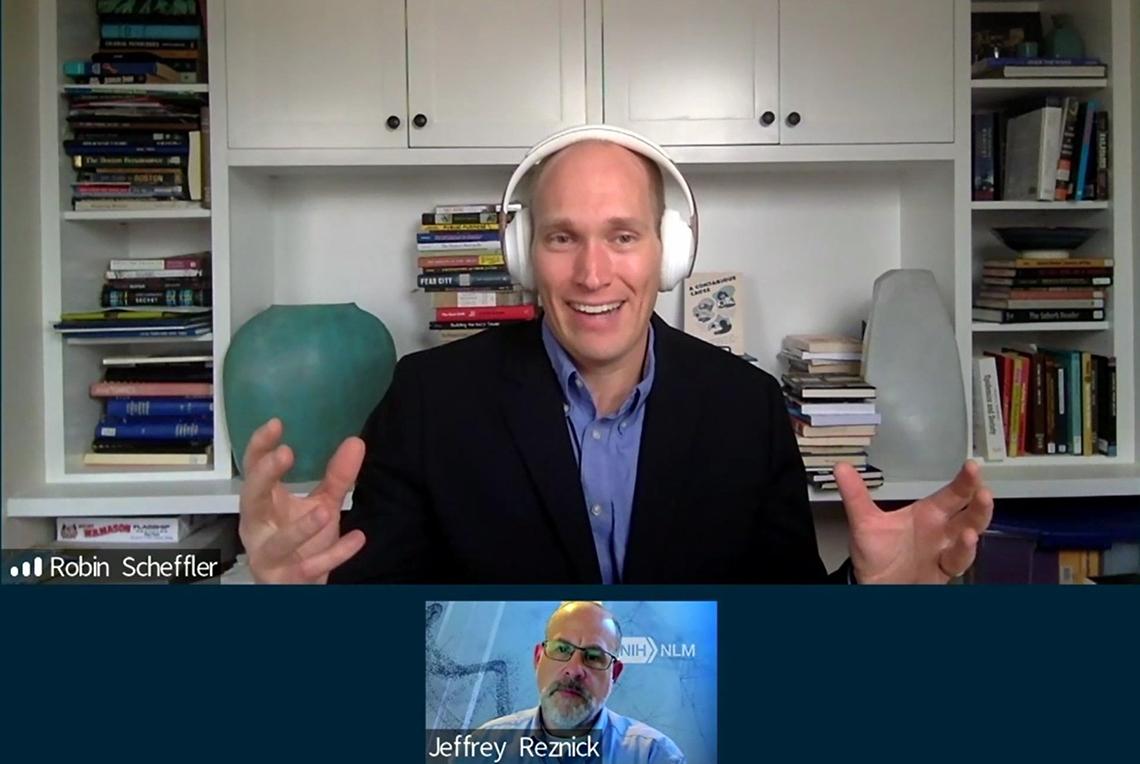National Cancer Act Legacy Still Debated, 50 Years Later

Photo: JONATHAN SACHS
When President Richard Nixon signed the National Cancer Act on Dec. 23, 1971, he declared war on cancer. A half-century later, debate over what constitutes victory continues, said Dr. Robin W. Scheffler during a recent NIH Biomedical History Lecture.
“The declaration ignited a broad-ranging explosion of research dedicated to understanding, curing and preventing cancer,” said Scheffler, assistant professor of science, technology and society at Massachusetts Institute of Technology.
The act was an investment in basic cancer research, not cancer care or prevention. In the 1950s, health activist and philanthropist Mary Lasker helped popularize the idea that basic research could defeat cancer. Around the same time, scientists thought they could cure diseases if they studied their molecular basis.
Lasker was inspired by previous medical breakthroughs in microbiology, such as the development of antibiotics and the polio vaccine. Scheffler said Lasker lobbied Congress to increase support for biomedical research “with the hope it would produce dividends against cancer and other diseases.”
As the budget for NIH and NCI increased in the 1960s, opponents of spending on biomedical research criticized how grants were administered. They wanted to make scientists more accountable to the public. Grants administrators adopted new methods developed by the RAND Corp. and the Department of Defense.
“These management methods were designed to address the urgency of Cold War research and development in guiding competition with the Soviet Union and manage complex projects in which there were multiple elements,” Scheffler explained.
In the decades leading up to the NCA’s passage, some scientists thought cancer had a viral cause. Even though a cancer-causing virus had yet to be identified, NCI leadership began funding cancer vaccine research.
“The argument is that until you invest in infrastructure, you’re not going to find human cancer viruses,” Scheffler said. “A lot of the work that needs to be done isn’t high-tech scientific work, but large-scale collection and screening.”
After Nixon declared the war on cancer, the investment in cancer research exploded. Not all scientists were happy with the government’s management. Many saw themselves as “creative, curiosity-driven experimenters” who thought NCI’s funding approach threatened the scientific community they wanted.
Scheffler said critics like molecular biologist Dr. James Watson believed that “you need to have an understanding of the fundamental biology of disease to make any meaningful headway.” That fundamental biology was best obtained through peer-reviewed research.
“By the late 1970s, there’s a great deal of disillusionment with the war on cancer,” Scheffler explained. “Part of this is motivated by the fact that the rate of cancer incidence continued to climb.”
A former FDA director called the war on cancer a “medical Vietnam,” a reference to the unpopular war. He said environmental, women’s health and civil rights groups critiqued NCI’s approach. They wanted to redirect funds toward public health and prevention-oriented pathways. The budget for NCI fell in the 1980s.
While the war on cancer failed to develop vaccines against the disease, it led to the discovery of the molecular mechanism for the genetic basis of cancer.

In 1976, Drs. J. Michael Bishop and Harold Varmus found that normal genes can mutate into genes that have the potential to cause cancer. The discovery demonstrated the importance of focusing on the cellular origins of cancer and led to the pair winning the Nobel Prize in Physiology or Medicine in 1989.
Molecular biologists and researchers who previously criticized the institute began to defend NCI’s role in research. Making progress against cancer would take a lot longer than a few years.
Over the last 50 years, molecular medicine produced many stunning breakthroughs.
“Thinking about what it means to mark success and failure gets into a number of very interesting questions about what it means to do molecular medicine and the place that molecular medicine has in combating diseases, such as cancer, overall,” Scheffler said.
